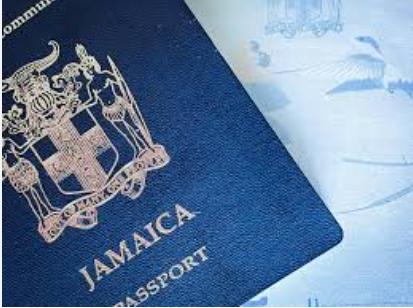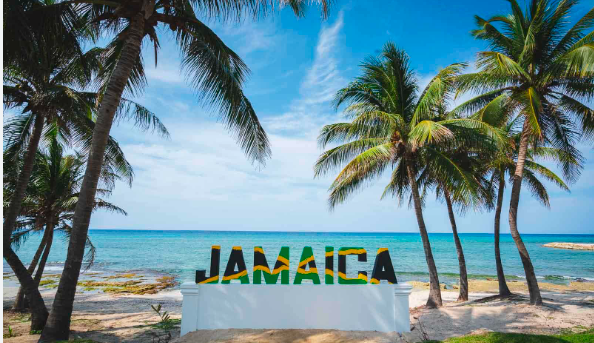What Do I Need to Know Before Traveling to Jamaica? Jamaica stands as a beacon of allure in the Caribbean, famed for its enchanting beaches, verdant landscapes, and a culture that pulsates with life. This island nation is more than a travel destination; it’s an experience steeped in rich history, rhythmic music, and a vivid tapestry of cultural influences.
This blog serves as a guide for travelers embarking on a journey to Jamaica, offering essential insights to navigate the vibrant life and soul of this beautiful island. From the soothing reggae rhythms to the serene beaches, every aspect of Jamaica promises to leave visitors with lasting memories.
Understanding Jamaican Culture and Etiquette

The culture of Jamaica is a dynamic blend of African, European, and indigenous influences, creating a society rich in tradition, resilience, and identity. Visitors are often captivated by the warmth and hospitality of the Jamaican people, which is a cornerstone of the island’s charm. Understanding and respecting local customs is key to a fulfilling experience in Jamaica.
In social interactions, courtesy is highly valued, and a friendly greeting is always well-received. Jamaicans take pride in their appearance, so dressing appropriately, especially when venturing into towns or rural areas, is a sign of respect. The island’s predominant Christian faith means that religious beliefs and practices are integral to the community, and visitors should be mindful of this aspect of Jamaican life.
Music and dance are vital expressions of Jamaican culture, yet visitors need to be considerate about the volume and content of music in public spaces. Dining in Jamaica is an experience in community and sharing, where meals often start once everyone is served, and tipping is customary to show appreciation for good service.
Finally, Jamaica’s stunning natural beauty is a national treasure. Visitors are encouraged to embrace an environmentally conscious approach, respecting the island’s wildlife and natural habitats. By immersing themselves in the nuances of Jamaican culture and etiquette, travelers can deepen their connection with the island and its people.
Read Also: Do You Need a Visa to Go to Jamaica? Understanding Entry Requirements
Travel Documentation and Requirements

Before setting off to explore the vibrant landscapes of Jamaica, travelers must be aware of the necessary travel documentation and entry requirements. All visitors must have a valid passport to enter Jamaica. The passport should be valid for at least six months from the date of entry and have enough blank pages for stamps. You may also need a visa to enter Jamaica depending on your country of origin. For instance, U.S. and Canadian citizens do not require a visa for stays less than six months. In contrast, nationals from several other countries might need to obtain one prior to arrival. It’s essential to check the latest visa requirements based on your nationality before planning your trip. Additionally, proof of onward travel and sufficient funds for your stay may be requested upon arrival.
Are you dreaming of an unforgettable Jamaican adventure? Look no further! Join our vibrant Facebook group at Island Dream Tour where you’ll find a community of fellow Jamaican enthusiasts.
Currency and Payment Methods
In Jamaica, the official currency is the Jamaican Dollar (JMD). While U.S. dollars are widely accepted, especially in tourist areas, it’s generally more economical to pay in the local currency. Exchange rates can vary, so it’s advisable to exchange some money upon arrival or at authorized currency exchange locations.
Credit cards are accepted at most hotels, restaurants, and larger stores, but it’s essential to have cash for smaller shops, local markets, or in rural areas.
ATMs are widely available, particularly in cities and tourist destinations. However, be cautious of your surroundings when using them and be aware of any transaction fees. When managing money, it’s wise to budget daily and keep track of your spending. Always keep some cash on hand for smaller expenses and emergencies.
Weather and Packing Essentials
Jamaica enjoys a tropical climate year-round, characterized by warm temperatures and distinct wet and dry seasons. The dry season, from December to April, is considered the best time to visit, with sunny days and cooler evenings. The wet season, from May to November, sees more rainfall, especially in the afternoons, but also has the advantage of fewer tourists and lush landscapes.
Packing for Jamaica should be based on the time of year and planned activities. Essentials include lightweight and breathable clothing, a waterproof jacket or umbrella for the rainy season, swimwear, sun protection (sunscreen, hats, and sunglasses), and comfortable walking shoes for exploring. For evenings or more formal occasions, a few dressier outfits are recommended.
Don’t forget to pack any necessary medications and a basic first-aid kit. If you plan to engage in specific activities like hiking or snorkeling, bring appropriate gear or check if it can be rented locally. Remember, even in the wet season, the sun can be strong, so adequate protection is always crucial.
Popular Destinations and Attractions
Jamaica is a treasure trove of attractions, catering to a myriad of interests. For beach lovers, the famous Seven Mile Beach in Negril offers pristine sands and crystal-clear waters, perfect for relaxation or water sports.
Adventure seekers should not miss the opportunity to explore the lush rainforests and majestic waterfalls, such as Dunn’s River Falls near Ocho Rios, offering exhilarating climbing and hiking experiences. History enthusiasts will find the colonial architecture and museums of Spanish Town captivating.
Read Also: Do You Need a Visa to Go to Jamaica? Understanding Entry Requirements
Meanwhile, music lovers can delve into the world of reggae in Kingston, which includes the Bob Marley Museum. Montego Bay, with its vibrant nightlife and luxurious resorts, appeals to those seeking a blend of relaxation and entertainment. Each destination in Jamaica has its unique charm and offerings, making the island a versatile choice for all types of travelers.
Jamaican Cuisine and Dining Etiquette
Jamaican cuisine is a delightful fusion of flavors influenced by African, European, Indian, and Chinese cuisines. Traditional dishes include jerk chicken, a spicy grilled delight; ackee and saltfish, the national dish; and rich stews like oxtail stew.
The island is also famous for its Blue Mountain coffee, one of the world’s best. Dining etiquette in Jamaica is fairly relaxed, but it is polite to wait until everyone is served before eating. Tipping is customary and appreciated in restaurants, usually around 10-15%. For an authentic dining experience, visitors should try the local “jerk” huts and eateries, where the true heart of Jamaican cuisine can be found.
Are you dreaming of an unforgettable Jamaican adventure? Look no further! Join our vibrant Facebook group at Island Dream Tour where you’ll find a community of fellow Jamaican enthusiasts.
Local Transportation Options
Navigating Jamaica can be an adventure in itself, with several transportation options available. Public buses are a cost-effective way to travel, especially for short distances within cities. For longer journeys, the express coach service offers comfort and efficiency. Taxis are widely available and convenient, but it’s recommended to use licensed taxis, recognizable by their red license plates.
Agreeing on the fare in advance is advisable. For those who prefer flexibility, renting a car is a good option, though it’s important to be cautious of the island’s winding and sometimes poorly maintained roads. Regardless of the mode of transportation, exploring Jamaica offers a chance to see the island’s diverse landscapes and immerse in the local culture.
Communication: Language and Connectivity
The primary language spoken in Jamaica is English, flavored with its unique Jamaican Patois twist, making it both accessible and intriguing for English-speaking travelers. When communicating, it’s helpful to listen carefully, as the local dialect can be fast-paced and filled with idiomatic expressions. For non-English speakers, carrying a language guide or using a translation app can be beneficial.
In terms of connectivity, Jamaica is well-equipped with mobile networks, and you’ll find that coverage is generally good, especially in urban and tourist areas. Most resorts, hotels, and cafes offer Wi-Fi access, allowing you to stay connected with ease.
Purchasing a local SIM card for your mobile device can be a cost-effective way to make calls and use data during your stay. Remember to check compatibility with your phone and inquire about the various packages available. Staying connected in Jamaica allows you to share your experiences in real time and access valuable online resources for travel information.
Conclusion
In this guide, we’ve explored the essential aspects of planning a trip to Jamaica, from understanding the cultural nuances and local customs to navigating the island’s diverse attractions. We’ve discussed the practicalities of travel documentation, health and safety considerations, currency matters, and the culinary delights that await. The island’s rich tapestry of experiences, from its lush landscapes and historical sites to the rhythmic pulse of its cities, offers something for every traveler.
Remember, a trip to Jamaica is not just about visiting a destination; it’s about immersing yourself in a vibrant culture and lifestyle. By being well-informed and respectful of local customs and people, your Jamaican journey is sure to be filled with memorable experiences.

